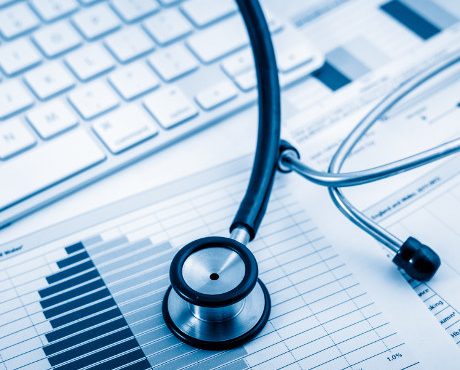Top High-Yield Stock to Consider
In an efficient market, higher returns always come with higher risk.
For instance, if you want to own the most established, well-known dividend-paying companies, you should prepare yourself for a rather average dividend yield. What is that yield? Well, to give you some idea, the average dividend yield of all S&P 500 companies right now is just 1.8%. (Source: “S&P 500 Dividend Yield,” Multiple, last accessed December 22, 2017.)
In other words, if markets are efficient and you want to earn a yield of, say, seven percent, you will likely have to take on more risk.
The good news is, markets aren’t always efficient in reality. Every once in a while, you may come across a high-yield stock whose payout is more than safe.
Sabra Health Care REIT, Inc. (NASDAQ:SBRA) is a good example of this. Headquartered in Irvine, California, Sabra is a real estate investment trust (REIT) that specializes in healthcare properties. The company’s portfolio currently consists of 569 skilled nursing facilities, senior housing, hospitals, and other healthcare properties. They are located throughout the U.S. and Canada. (Source: “JPM Securities,” Sabra Health Care REIT, Inc., last accessed December 22, 2017.)
Also Read:
SBRA Stock: 3 Reasons to Consider This 7.7% High Dividend Yield
Like most real estate companies, Sabra’s main source of income is rent. The company leases its properties to tenants. In return, it collects a steady stream of rental income.
And because it chooses to be taxed as a REIT, Sabra must return as least 90% of its taxable profits every year to shareholders in the form of dividends.
Sabra currently pays quarterly dividends of $0.45 per share. Trading at $18.63 apiece, the company offers an annual dividend yield of 9.7%.
Given the average S&P 500 yield I mentioned earlier on, investors purchasing SBRA stock today can lock in a yield more than five times the benchmark’s average.
Sabra’s high dividend yield allows it to stand out in today’s stock market. But what actually makes SBRA stock worth considering is its dividend safety.
In the real estate business, a key metric to consider is funds from operations, which represents the amount of cash generated from a REIT’s operating activities. Some companies may borrow money to fund its dividends. But, in order for a REIT’s dividends to be sustainable, it needs to generate enough funds from operations to cover its distributions.
Sabra reported earnings on November 1, 2017. In the third quarter of this year, the company generated normalized funds from operations of $0.63 per share, up 16.7% year-over-year. The amount was considerably more than the $0.43 of dividend per share corresponding to this period. (Source: “Sabra Reports Third Quarter 2017 Results and Improved Balance Sheet With Leverage Lowered to 4.79x,” Sabra Health Care REIT, Inc., November 1, 2017.)
In the first nine months of this year, Sabra generated normalized funds from operations of $1.75 per share. Since the company declared $1.28 of total dividends per share for this period, it had a payout ratio of 73.1%, which leaves a sizable margin of safety.
High Dividends Backed By a Durable Business
Other than the payout ratio, another thing to keep in mind when evaluating a company’s dividend safety is the nature of its business. Sometimes a company can have a very conservative payout ratio, but—if it operates in a highly cyclical business—the dividend might not be safe once its business slows down.
Fortunately, healthcare real estate is a rather durable business. The demand for healthcare services, such as those offered by the operators of Sabra’s properties, is known to be relatively inelastic to how the overall economy is doing. This allows Sabra to earn a steady stream of rental income through thick and thin.
Of course, like most ultra-high yielders, Sabra is not perfect. In particular, one of its top operators, Genesis Healthcare Inc (NYSE:GEN), has been experiencing some serious financial troubles.
Luckily, Sabra was quick to react. The company has entered into memoranda of understanding with Genesis to market for sale 35 skilled nursing facilities. By 2018, Genesis Healthcare’s contribution to Sabra’s annualized cash net operating income is expected to drop from the current share of 13% to less than five percent.
Final Thoughts on SBRA Stock
In the world of ultra-high yielders, Sabra is a rare find. The company has earned investment-grade ratings from both Standard & Poor’s Financial Services LLC and Fitch Ratings, and it has more than enough resources to cover its generous distributions.
For income investors looking for a high-yield stock to boost their portfolio returns, SBRA stock should be near the top of their watch lists.
